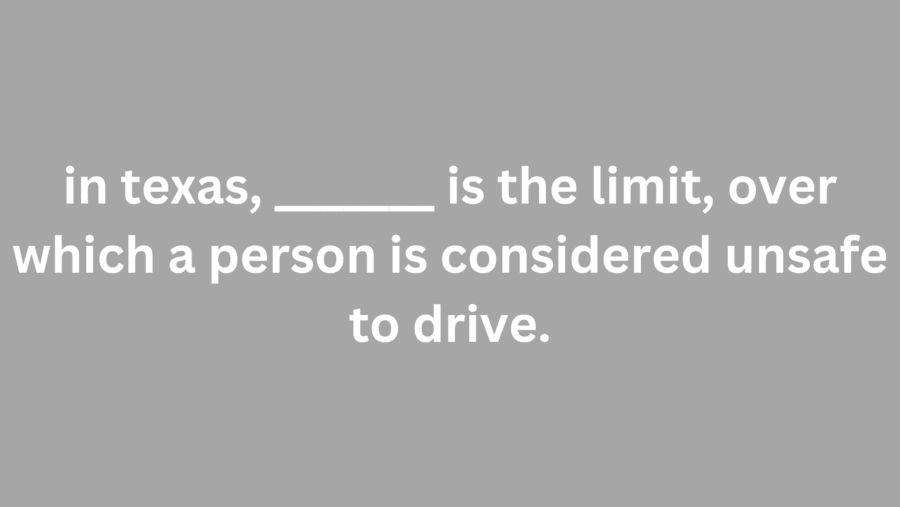in texas, _______ is the limit, over which a person is considered unsafe to drive. – Driving under the influence of alcohol is a serious offense that jeopardizes not only the life of the driver but also poses a significant risk to other road users. To ensure safety on Texas roads, the state has established a legal limit for blood alcohol content (BAC), beyond which a person is considered unsafe to drive. Understanding and adhering to this limit is crucial to preventing accidents, injuries, and fatalities caused by impaired driving.
The Legal BAC Limit in Texas
In Texas, as in most states across the United States, the legal BAC limit for non-commercial adult drivers is 0.08%. This means that if a person’s BAC level reaches or exceeds 0.08%, they are considered legally impaired and unfit to operate a motor vehicle. It is important to note that this limit applies to drivers aged 21 and above.
For drivers who are under the legal drinking age, Texas has a zero-tolerance policy. Any detectable amount of alcohol in their system while operating a vehicle can result in severe consequences, including license suspension, fines, and mandatory alcohol education programs. The zero-tolerance policy emphasizes the state’s commitment to protecting young drivers and preventing underage drinking and driving.
Question – In texas, _______ is the limit, over which a person is considered unsafe to drive.
Answer – 0.08% is BAC limit in texas.
Consequences of Violating the BAC Limit
Driving with a BAC level above the legal limit is a serious offense in Texas, and the consequences can be severe. These penalties are in place to deter individuals from making the dangerous choice of getting behind the wheel while impaired. The penalties for a first-time DWI (Driving While Intoxicated) offense in Texas may include:
- License suspension: Upon arrest, a driver’s license can be immediately suspended. If convicted, the suspension period can range from 90 days to one year, depending on the circumstances.
- Fines: First-time offenders can face fines up to $2,000, which may increase for subsequent offenses.
- Jail time: A first-time DWI offense can result in a jail sentence of up to 180 days, depending on the circumstances.
- Mandatory alcohol education programs: Convicted individuals often have to complete a DWI education program or a related intervention program at their own expense.
- Ignition interlock devices: In some cases, the court may order the installation of an ignition interlock device in the offender’s vehicle. This device measures the driver’s BAC level before allowing the vehicle to start.
Repeat offenders or those involved in accidents that cause serious injury or death may face even harsher penalties, including longer license suspensions, higher fines, extended jail time, and mandatory rehabilitation programs.
Promoting Safety and Responsible Choices
The establishment of a BAC limit in Texas serves as a crucial tool in preventing alcohol-related accidents and promoting safer roads. However, it is essential to remember that responsible decision-making and avoiding alcohol consumption altogether when planning to drive are the best ways to protect oneself and others from the dangers of impaired driving.
Alternative transportation options, such as designated drivers, ridesharing services, or public transportation, are widely available in Texas and offer convenient and responsible alternatives for those who have been drinking.
Conclusion
In Texas, the legal blood alcohol content limit of 0.08% acts as a crucial benchmark for determining safe and responsible driving. Exceeding this limit not only puts the driver at risk but also endangers the lives of innocent road users. By understanding the legal limit and choosing not to drive when impaired, individuals can contribute to safer roads, reduce accidents, and ultimately save lives. Responsible decision-making and raising awareness about the dangers of impaired driving are vital to ensuring the well-being of all Texans on their journeys.
